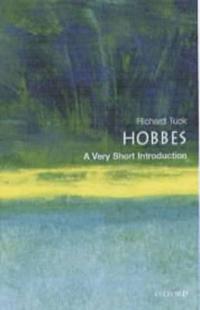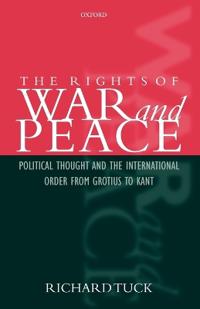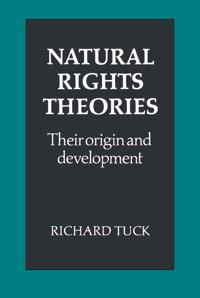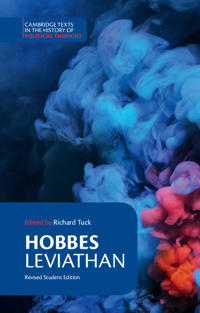Hobbes (Häftad)
avRichard Tuck
ISBN: 9780192802552 - UTGIVEN: 200205Thomas Hobbes has long had the reputation of being a pessimistic atheist, who saw human nature as evil and proposed a totalitarian state to subdue human failings. In this study, Richard Tuck re-evaluates Hobbes' philosophy, revealing him to have been concerned with the refutation of scepticism.[...]
Rights of War and Peace, The: Political Thought and the International Order from Grotius to Kant (Inbunden)
avRichard Tuck
ISBN: 9780198207535 - UTGIVEN: 1999-11-11The Rights of War and Peace (Häftad)
avRichard Tuck
ISBN: 9780199248148 - UTGIVEN: 200109This is an historical account of the formative period of modern theories of international law. It examines the arguments over the moral basis for war, and links the debates to the writings of theorists such as Hobbes, Locke, Kant, and Rousseau.[...]
Natural Rights Theories (Pocket)
avRichard Tuck
ISBN: 9780521285094 - UTGIVEN: 1982-01Presents the origins of natural rights theories in medieval Europe and their development in the 17.th century.[...]
On the Citizen (Pocket)
avThomas Hobbes, Richard Tuck, Michael Silverthorne
ISBN: 9780521437806 - UTGIVEN: 1998-08-01Leviathan (Pocket)
avThomas Hobbes, Richard Tuck, Thomas Hobbes
ISBN: 9780521567978 - UTGIVEN: 199608Thomas Hobbesâ Leviathan is arguably the greatest piece of political philosophy written in the English language. Written in a time of great political turmoil (Hobbesâ life spanned the reign of Charles I, the Civil Wars, the Commonwealth and the Protectorate, and the Restoration), Leviathan[...]
Free Riding (Inbunden)
avRichard Tuck
ISBN: 9780674028340 - UTGIVEN: 200807One individual's contribution to a large collective project - such as voting in a national election or contributing to a public television fund-raising campaign - often seems negligible. A striking proposition of contemporary economics and political science is that it would be an exercise of reason,[...]









